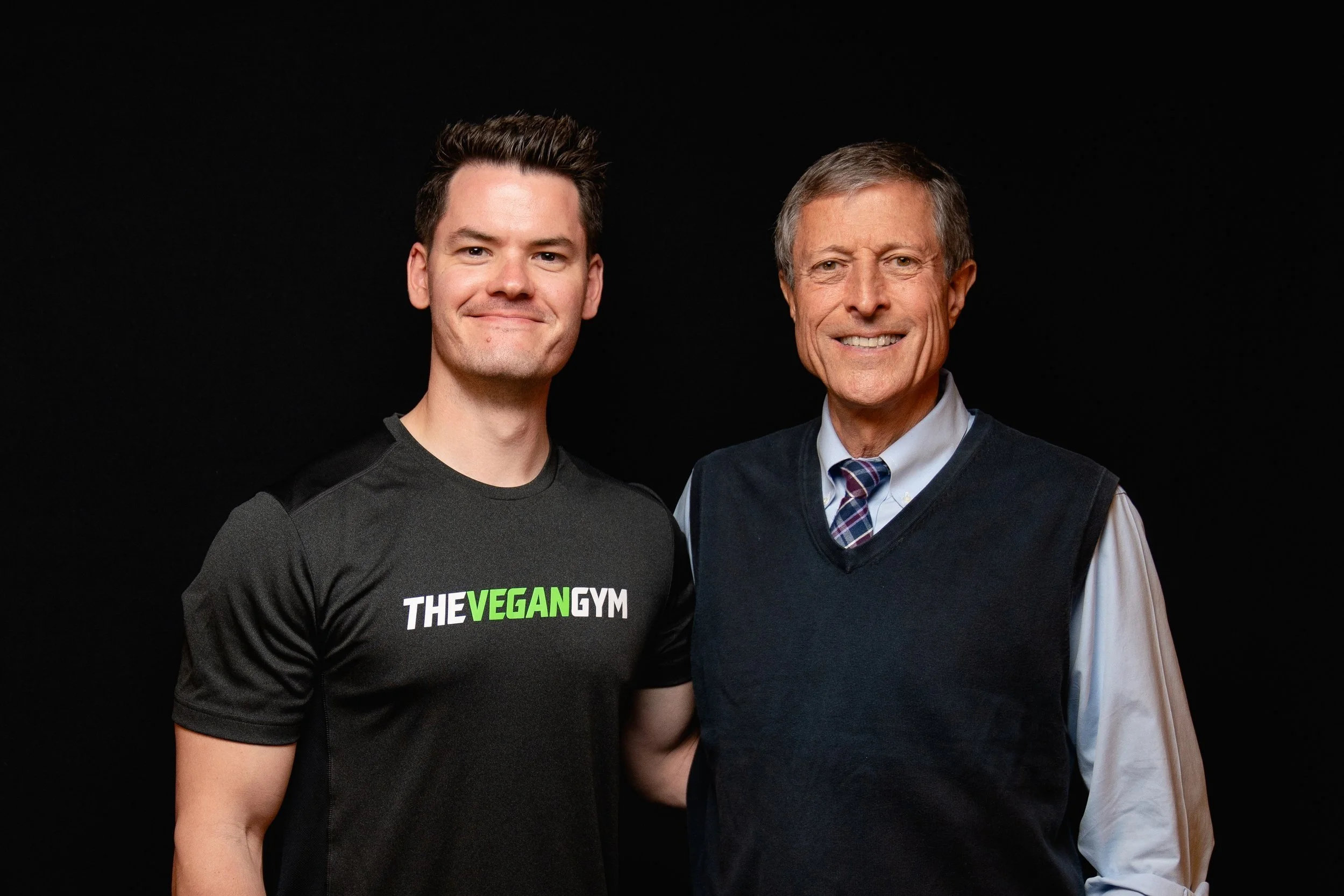Dr. Neal Barnard is a professor of medicine, the founder of the Barnard Medical Center, and the president of the Physicians Committee for Responsible Medicine, all while constantly writing new books.
How does he get it all done? 😅
Let us know what you think! Leave your comments on YouTube.
Here are some highlights from this powerful interview with the legend, Dr. Barnard.
The Power of a Plant-Based Diet
Switching to a plant-based diet can revolutionize your health. This isn't just about weight loss; it's about preventing and even reversing diseases. Dr. Barnard emphasizes that if you're not eating meat, your arteries can open up again, making diseases reversible. This is crucial because many health issues, including high cholesterol and high blood pressure, are diet-related.
Practical Tips for Transitioning
To successfully transition to a vegan diet, start with small steps. Spend a week exploring plant-based options you could enjoy. Oatmeal with cinnamon and raisins, pancakes without butter, or scrambled tofu instead of eggs can be excellent choices. After a week, you’ll have a list of foods you like. Then, try a three-week test drive, eating vegan all the time. Most people notice significant changes in their weight and overall health within this period.
Addressing Menopausal Symptoms with Diet
Menopause can bring various symptoms, but diet can help manage them. Dr. Barnard's research shows that a plant-based diet, low in oils, and includes soybeans can significantly reduce hot flashes.
Steps to Follow
Adopt a Plant-Based Diet: Eliminate animal products.
Keep Oils Low: Reduce intake of high-fat plant foods like avocados and peanut butter.
Include Soybeans: Half a cup of mature soybeans daily can be particularly effective.
Combating Hormonal Imbalances
For conditions like hypothyroidism and PCOS, a plant-based diet can be beneficial. Research suggests that hypothyroidism is least common in vegans. Ensuring adequate iodine intake, such as through seaweed, is also essential. For PCOS, a diet similar to that recommended for diabetes, which focuses on whole plant foods and low in added oils, can be transformative.
The Role of Omega-3 Fats
Omega-3 fats are crucial for health but should be consumed cautiously. High levels of omega-3 have been linked to an increased risk of prostate cancer, so it's important to try to get these fats from whole foods like flaxseeds and chia seeds rather than supplements.
Personal Care Products and Health
While diet is the primary focus, it's also wise to avoid certain substances in personal care products. Aluminum, found in many deodorants, is a neurotoxin and should be avoided. Opt for aluminum-free options to reduce exposure.
Conclusion
Adopting a plant-based diet offers numerous health benefits, from weight loss to reducing menopausal symptoms and managing hormonal imbalances. Practical steps like starting with small changes, keeping oils low, and including soybeans can make a significant difference.
Additionally, being mindful of personal care products can further enhance overall health.



